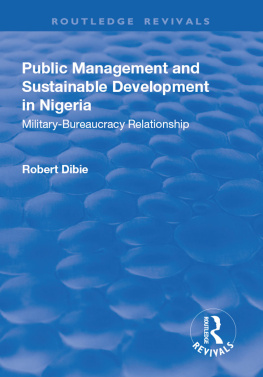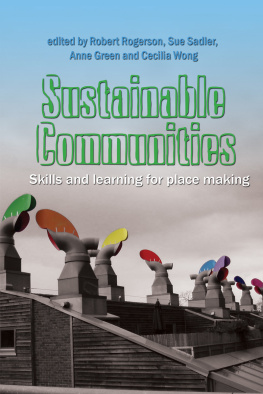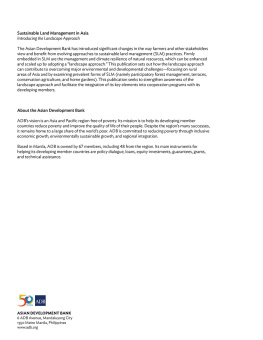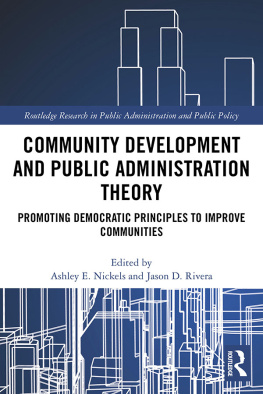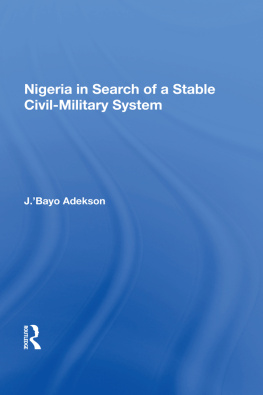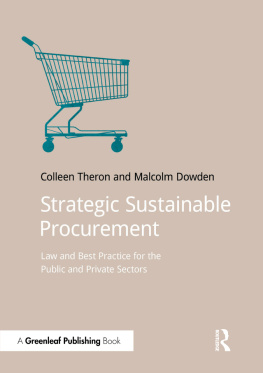PUBLIC MANAGEMENT AND SUSTAINABLE DEVELOPMENT IN NIGERIA
To
Mr Jones David Dibie and Mrs Sarah Eloh Dibie
I dedicate this volume to my beloved parents and trusted advisors who dedicated all their resources to make me whom I am today. They struggled to provide different things for their children, especially the much needed encouragement and support that galvanized my ambition for intellectual excellence.
Public Management and Sustainable Development in Nigeria
Military-Bureaucracy Relationship
ROBERT DIBIE
First published 2003 by Ashgate Publishing
Reissued 2018 by Routledge
2 Park Square, Milton Park, Abingdon, Oxon OX14 4RN
711 Third Avenue, New York, NY 10017, USA
Routledge is an imprint of the Taylor & Francis Group, an informa business
Copyright Robert Dibie 2003
The author hereby asserts his moral right under the Copyright, Designs and Patents Act, 1988, to be identified as the author of this work.
All rights reserved. No part of this book may be reprinted or reproduced or utilised in any form or by any electronic, mechanical, or other means, now known or hereafter invented, including photocopying and recording, or in any information storage or retrieval system, without permission in writing from the publishers.
Notice:
Product or corporate names may be trademarks or registered trademarks, and are used only for identification and explanation without intent to infringe.
Publishers Note
The publisher has gone to great lengths to ensure the quality of this reprint but points out that some imperfections in the original copies may be apparent.
Disclaimer
The publisher has made every effort to trace copyright holders and welcomes correspondence from those they have been unable to contact.
A Library of Congress record exists under LC control number: 2001097974
ISBN 13: 978-1-138-71955-2 (hbk)
ISBN 13: 978-1-315-19421-9 (ebk)
Contents
This book examines public management and the trend of sustainable development in Nigeria from 1966 to 1999. The text analyzes the trend of change that occurred in Nigeria during the several military regimes and the short democratic government. It argues that Nigeria needs to change in both its public administration and military institutions in order to attain sustainable development. In the past four decades Nigeria has experienced negative transformation in its political leaders, public management, economic development, industrial organizations and quality performance. The major question is not public or private management style, rather it is, how does Nigeria get the public and private sectors to most effectively meet social needs? This is referred to as sustainable development in this book.
This book addresses why public administrators in Nigeria are happy with the status quo. It uses several case studies to present an argument that Nigeria must come to terms with its lack of capable public administrators to organize production, and manage industrial operations in an effective and efficient manner. One of the major factors, which have made Nigeria to experience the above negative transformation, is the social and economic environment that public administrators operate in. The public administration environment in Nigeria has taken various structural and cultural forms. As a result extended family, corruption, ethnic tie has affected the impartiality of public managers and private invested interests in competition for state patronage. These factors become very crucial in a nation such as Nigeria where the state has been the main agent of development. Thus, the text contends that the effective performance of public administration in the sustainable development process will require a high level of creative assessment and innovation on the part of political leaders. Further senior public managers that envisage not simply the improvement of administrative performance but a restructuring of existing government institutions, behavior, social and cultural change must be willing to show good examples. Therefore, the task of training competent public administrators and genuine industrial technologists in Nigeria is not only imperative, it is urgent. Greater emphasis must be placed on the development of public managers through formal education and industrial training.
Nigeria is blessed with abundant natural and mineral resources but these resources have not been used to provide sustainable development for the people of the nation. Why is it so? The answer according to this text is lack of competent public managers and grid. The inability of the Nigerian government to manage its resources remains the single most important problem that must be addressed by the new democratic administration of the nation.
Failure, success or transformation in the sustainable development process of a nation often depends on assessment of what it takes to protect, reform, manipulate, or do away with prevailing institutions and regimes. There is also an emerging consensus on the need for change in the role of the state. The World Bank and IMF have increasingly demanded that the Nigerian government should relieve itself of a number of functions. This need arises from the incapacity of the government to achieve its objective of enhancing economic and sustainable development. The civil service and government agencies that are instruments and apparatus for the attainment of these objectives are simply not equal to the task. This limitation in the public sector performance calls for immediate action on the part of the government in: (1) restructuring government involvement; (2) accountability and transparency; (3) training of competent public managers; and (4) changing some of the social and cultural values in the nation.
This book expands the empirical and theoretical analyses of development policy and its implementation that have traditionally relied on motives of rationality (costs/benefits) to explain bureaucratic behavior. It examines and juxtaposes the military-dominated policy making apparatus with the traditional bureaucracy, which has the responsibility for the execution of public policy. It also attempts to make some contribution to Nigerian and comparative literature in the field of industrial development policy.
This book also examines the type of public policy that emanated from the transformation role of the Government of Nigeria between 1966 and 1999. These policies range from deregulation to structural adjustment (including privatization). The text also evaluates a number of policies that the Nigerian government has implemented for the purpose of restructuring the public service. However, public administrators in the nation seem to embrace the status quo rather than taking advantage of these change instruments. This book analyzes the implication of this profound transformation and the unique characteristics of the civil services as an instrument of national development.
This book is unique and distinguishes itself by studying the political system model in a unitary and developing nation where actors operate in a highly centralized manner. It helps identify the differences between, and reveals the difficulties in applying the political system model to Nigeria rather than to the United States. The main question addressed is: What is the relationship between the Nigerian military junta and the countrys bureaucracy in the development processes and how has this relationship been shaped by the colonial legacy? The major argument developed in this book is that Nigeria needs to build an institutional capacity for sustainable development on the basis of democratic values.


